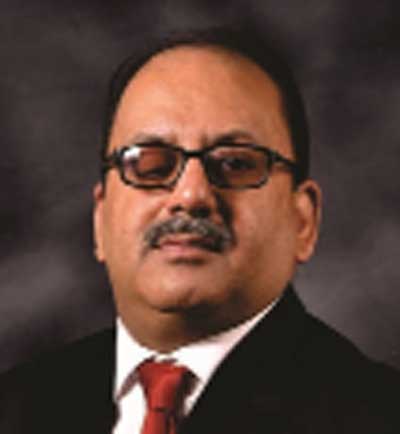As we usually heard controversial opinions of people belong to different areas of life that the supremacy goes to the constitution or of the parliament or lying with the judiciary. Some have opinion that legislature is supreme to all pillars of the State while others say that the judiciary is superior most and some believe the establishment is superior.
Unfortunately, even educated class of people at some extent do not know that the establishment in fact is not an organ of the state but as per Article 245 of the Constitution of Islamic Republic of Pakistan, it is merely a department for defending the citizens of the State of Pakistan from external aggression subject to law and act in aid of Civil Power when called to do so.
In real sense, neither parliament i.e. legislature nor judiciary (High Courts and the Supreme Court) are superior to the constitution. Once the constitution was promulgated and enforced, finally in 1973 and it has given proper demarcations of each and every organ of the state as well their institutions and departments to do their own functions with strict adherence of the doctrine of separation of powers.
None of the state organs has any authority to disturb that demarcation as given by the constitution of Pakistan. It admits of no doubt that the legislature has the power to pass any amendment but it does not allow ruining the spirit, the main and major object of the constitution. Amendment can only be for a minor change or addition to improve the existing constitution. As per the constitution the judiciary has the power to check whether any amendment is in accordance with the essence of constitution or in violative to it.
It is a fact; opened to everyone as a bright day that on 10th day of April, 1973, the 5th elected parliament unanimously approved the Constitution of Pakistan, 1973. It was formulated by law experts, constitutional analysts and country’s reputed clergymen. They worked day and night with esteemed sincere efforts to represent the will and desire of the people of Pakistan.
The great jurists, politicians, religious clerics and philosophers regard the constitution as a supreme law of any country which governs over all institutions of countries. Nobody (who has the clear mind) can deny the constitution is a fundamental and organic law of a country that establishes institutions. It also gives rules and regulation and laws to govern the apparatus of the government and ensures the civil rights and civil liberties to the citizens.
If there is no remedy available in formal laws, then the constitution is only way out for redressing the grievances. Aggrieved parties invoke the constitutional jurisdiction of the superior courts for preserving their fundamental rights. The constitutional petitions preferred generally under Article 199 and 184 (3).
It is an admitted fact that every sort of law either criminal or civil is closely interlinked with our constitution. Due to such interwoven relation of general laws and constitution opens the single way of constitutional jurisdiction to avail rights of individual (each citizen of Pakistan). This important goal is being achieved through the constitutional courts of provinces (High Courts) and apex court which is only one regarded as”The Supreme Court of Pakistan”.
How can a man (who has some wisdom), split such an apex court which regulates the whole judicial system from bottom to top and top to bottom. The spirit of Constitution of Pakistan does not permit in any way to create or establish any parallel apex court for setting a separate special purpose to deal with only constitutional affairs. The motive behind 26th Amendment is very clear that the separate constitutional benches would act against the fundamental rights of the people of Pakistan under wish and will of undemocratic powers.
With heavy heart we can say that the parliament under influence of high-handedness of some power lusted persons have created a great mess by passing the 26th Constitutional Amendment. It seems near to impossible for citizens to avail relief against the federation or provinces whenever they infringe their fundamental constitutional rights. The parliament of Pakistan, in a hurry and even without any debate, passed the constitutional amendment and provides a room to the dictators to easily rule over the people of Pakistan by treating them as slaves through curbing their fundamental rights.
Through 26th Amendment the Supreme Court will become only the appellate court just like the District Courts. The legislature has also snatched the suo moto jurisdiction from the High Courts and Supreme Court by amending the article 199 and 184 (3). The concept of public interest litigation which was the core of the constitution has been buried by the so called legislature. It is an admitted fact that the court of law by the virtue of the settled laws and the doctrine of check and balance has the power to stop any organ of the state from the abuse.
The malice intent of the legislature on the behest of the third power is to ruin the most important pillar of the state i.e. the Judiciary of Pakistan. As per the international commission of jurists the 26th Constitutional Amendment is a blow to judicial independence, the rule of law, and human rights protection as the changes in the basic structure of the constitution has bring the extraordinary influence of parliament over the judiciary.
Now the parliament is empowered to pick and choose the Chief Justices of the High Courts and the Chief Justice Supreme Court which is in the sheer violation of the criteria settled by the full bench of the Supreme Court in Al Jihad Trust case reported at PLD 1996 SC 324. This case law established the importance associated with the separation of powers between the legislature, executive and judiciary. Only the transparent appointment process of judges would protect the rights of the public which brutally destroyed by the recent unconstitutional amendment No. 26th. Such ultra vires amendment is liable to be struck down by the Supreme Court of Pakistan with the consonance of the collective vision of the constitution and within the guidelines provided in case reported at PLD 2015 S.C. 401 (District Bar Association Rawalpindi Vs Federation of Pakistan).





